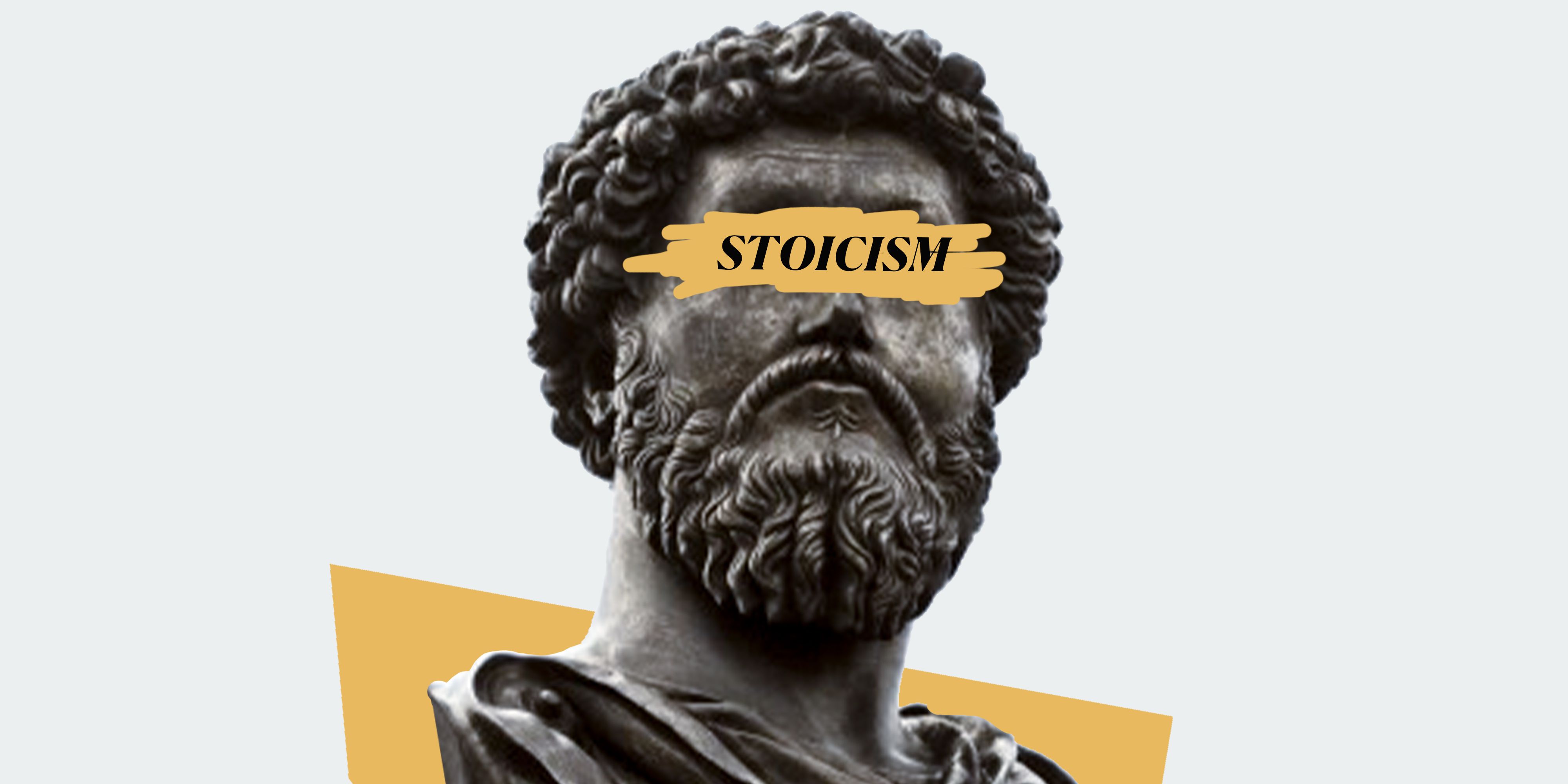Stoic Dads: Exploring the Meaning and Benefits of Stoic Philosophy

Parenting can often feel like navigating a minefield of challenges, from striking a work-life balance to managing technology and screen time. But what if we told you there's an ancient philosophy that can help you navigate these modern parenting conundrums? Enter Stoicism, a practical philosophy that's all about cultivating virtues, developing emotional resilience, and focusing on what's within our control. In this blog post, we'll explore how Stoic philosophy can provide a fresh perspective on parenting and help you become the cool, calm, and collected stoic dad you've always wanted to be. Embracing the principles of stoic dads can make a significant difference in your parenting journey.
Short Summary
-
Be a Stoic Dad: emotionally resilient, present and virtuous.
-
Use strategies like premeditating evils & reflective journaling with humor.
-
Equip your kids with emotional intelligence for a lifetime of joy!

The Essence of Stoic Fatherhood
Dating back to the 3rd century BC, Stoicism is an ancient philosophy that has stood the test of time, providing practical guidance for living a life of moral excellence. At its core, Stoic parenting is all about cultivating virtues such as rationality, emotional resilience, and self-control, reminding us to focus on what is truly important and within our control. With its emphasis on living a life of virtue, Stoicism offers a solid foundation for raising well-rounded, emotionally intelligent children who are equipped to handle the challenges of the modern world.
Take a moment to imagine a world where every parent practiced Stoic principles in their daily lives. In this world, dads would be the epitome of emotional resilience, guiding their children through life's ups and downs with grace and wisdom. They would be present in the moment, fully engaged in their children's lives, and consistently modeling the virtues they hope their children will adopt.
This is the essence of Stoic fatherhood, a philosophy that provides a roadmap for raising children who are strong, compassionate, and grounded in their values.
Virtues in Parenting
As the core of Stoic ethics, virtue is key to living a life of moral excellence. In the context of parenting, Stoic philosophy emphasizes the importance of modeling virtues such as wisdom, courage, justice, and self-discipline, to guide our children towards a life of moral and ethical integrity. By embodying these virtues, Stoic dads can inspire their children to strive for moral excellence, ultimately helping them develop the character strengths needed to face life's challenges.
But what does it mean to be a virtuous parent in practice? It starts with being attuned to our own thoughts, emotions, and actions, and ensuring that we are living in accordance with our values. This self-awareness allows us to recognize areas where we can improve, and it helps us to make thoughtful, deliberate decisions when it comes to our children's upbringing.
By consistently practicing virtue in our daily lives, Stoic dads can become the wise, compassionate role models their children need to thrive.
Rationality and Emotional Resilience
A cornerstone of Stoic philosophy is the cultivation of rationality and emotional resilience, qualities that are crucial for navigating the ups and downs of life. For Stoic dads, this means cultivating a deep understanding of their own emotions and teaching their children to do the same. In doing so, they empower their children to develop healthy emotional regulation strategies, setting them up for a lifetime of emotional well-being.
What's more, by fostering rationality, Stoic dads teach their children to approach challenges and obstacles with a clear, level-headed mindset. This skill not only helps children cope with difficult situations, but also encourages them to make sound decisions based on logic and reason.
In short, by practicing Stoic principles, dads can raise children who are emotionally intelligent, resilient, and well-equipped to navigate the complexities of modern life.
Practical Stoic Strategies for Dads

Armed with the wisdom of Stoic philosophers like Marcus Aurelius and Seneca, modern dads can adopt practical Stoic strategies to help them navigate the challenges of parenthood. These strategies include premeditation of evils, practicing discomfort, and reflective journaling, all of which can help fathers become better role models for their children and lead more fulfilling lives.
By premeditating potential evils, fathers can prepare themselves for the worst and be better equipped to handle difficult situations. Practicing discomfort can help fathers become more resilient and better able to handle the stress of parenting. Reflective journaling can help fathers gain insight into their own lives.
Premeditation of Evils
The practice of premeditation of evils, or premeditatio malorum, involves visualizing potential catastrophes and challenges that may arise in the future, so you can be prepared for anything life throws your way. This practice can help dads develop emotional resilience, allowing them to remain calm and collected in the face of adversity.
By regularly engaging in premeditation of evils, dads can become better equipped to handle unexpected challenges and setbacks, both in their personal lives and in their roles as parents. This increased emotional resilience will not only benefit dads themselves, but also serve as a powerful example for their children, demonstrating the value of mental fortitude in the face of adversity.
Practicing Discomfort
Practicing discomfort is another Stoic exercise that can help dads develop discipline and self-control. This practice involves intentionally exposing oneself to uncomfortable situations, such as taking cold showers or fasting, in order to build mental and physical toughness.
By regularly practicing discomfort, dads can become more adaptable and resilient, better able to cope with the inevitable challenges and stresses that come with parenting. In turn, this resilience can be passed on to their children, helping them develop the ability to face life's obstacles with courage and determination.
Reflective Journaling
Reflective journaling is a powerful tool that can help dads cultivate self-awareness, emotional intelligence, and a deeper understanding of their thoughts, emotions, and actions. This practice involves setting aside time to reflect on one's experiences, feelings, and behaviors, either through visualization, journaling, or simple daydreaming.
Through regular reflective journaling, dads can gain valuable insights into their parenting styles, identify areas for improvement, and develop a clearer sense of their personal values and goals. In doing so, they can become better role models for their children, teaching them the importance of self-awareness and emotional intelligence in navigating the complexities of life.
Stoicism and Modern Parenting Challenges
Stoicism is not just an ancient philosophy with timeless wisdom; it is also a practical approach to parenting that can help modern dads address some of the most pressing challenges they face today. From achieving work-life balance to managing technology and screen time, and promoting mental health and well-being, Stoic parenting offers valuable guidance for navigating these complex issues.
Work-Life Balance
Achieving work-life balance is a challenge faced by many modern dads, who often struggle to juggle the demands of their careers with their responsibilities as parents. Stoic parenting principles can help dads strike a healthy balance by encouraging them to set boundaries, prioritize tasks, and practice self-care.
By embracing the Stoic approach to work-life balance, dads can learn to manage their time and energy more effectively, ensuring that they are fully present and engaged in both their professional and personal lives. In turn, this balance can lead to healthier, happier families and more fulfilling lives for dads and their children alike.
Technology and Screen Time
In today's digital age, managing technology and screen time can be a daunting task for parents. Excessive screen time can have a range of effects on children's development, from their social skills to their emotional regulation and cognitive functioning.
Stoic parenting can help dads address this challenge by teaching them to be mindful of their children's exposure to technology and to set appropriate boundaries. By applying Stoic principles, dads can encourage their children to engage in more meaningful activities and interactions, both online and offline.
This can help promote healthy development, foster strong relationships, and ensure that technology is used as a tool to enhance, rather than hinder, their children's growth and well-being.
The Impact of Stoic Fatherhood on Children
The benefits of Stoic fatherhood extend far beyond the immediate parenting challenges it helps to address. By embracing Stoic principles and practices, dads can have a lasting, positive impact on their children's development, shaping them into emotionally intelligent, resilient, and morally grounded individuals.
Children raised by Stoic dads are likely to exhibit increased self-awareness, improved decision-making skills, and greater emotional intelligence, as they learn to navigate their emotions and face life's challenges with courage and determination. These qualities not only set the foundation for a happy, fulfilling life, but also prepare children to become compassionate, responsible citizens who can make a positive impact on the world around them.
Summary
In conclusion, Stoic philosophy offers a practical, time-tested approach to parenting that can help modern dads navigate the challenges of raising emotionally resilient, morally grounded children. By embracing the wisdom of Stoic philosophers like Marcus Aurelius and Seneca, and adopting practical strategies such as premeditation of evils, practicing discomfort, and reflective journaling, dads can become better role models for their children and lead more meaningful lives.
The impact of Stoic fatherhood on children is profound, fostering a strong sense of self, emotional intelligence, and the ability to make sound decisions in the face of adversity. By embracing the principles of Stoic parenting, dads can not only address the immediate challenges of modern parenting, but also set the foundation for a lifetime of happiness, fulfillment, and emotional well-being for their children. So why not give Stoic parenting a try? Your children will thank you for it. Stay awesome, dads! Happy Father's Day.



